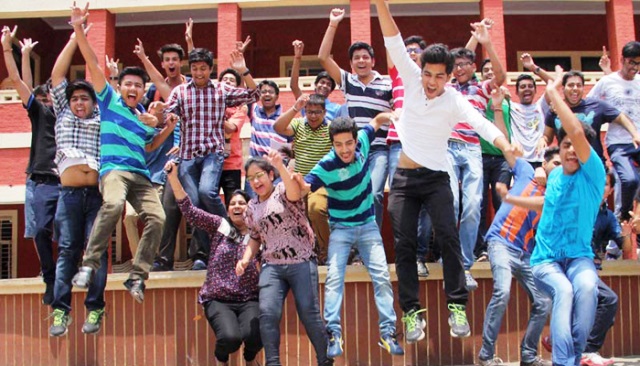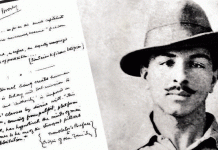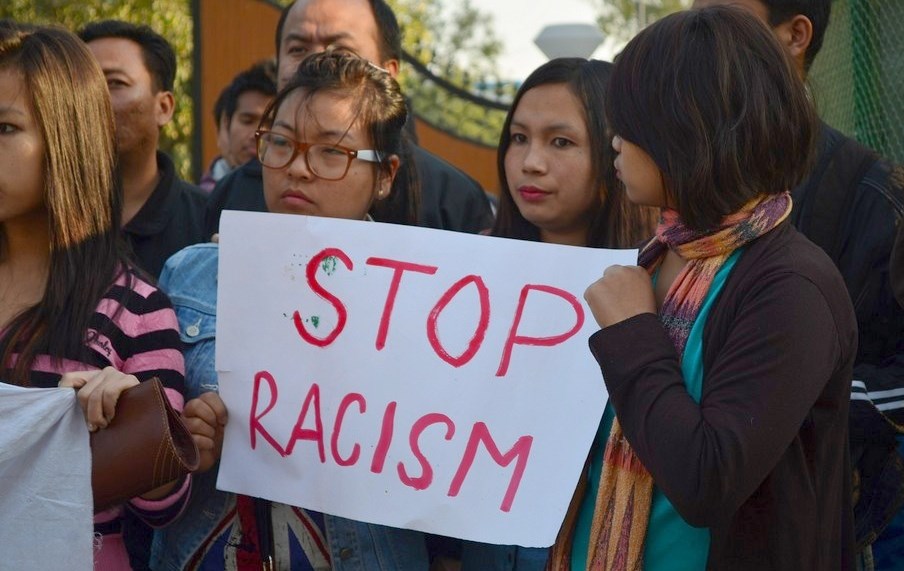
The State Board Examination results have been declared across the different states, revealing that a significant section of students have failed to pass the examination in more than one subject.
Two lakhs students failed in the class 10th exam in Andhra Pradesh, seven lakh 80 thousand students failed in Uttar Pradesh, nearly 14 % students failed in West Bengal and around two lakh students failed in the Gujarat State Board Examination. As results for other State Board Examinations are being announced, we are being faced with an alarming number of candidates who could not successfully clear the examinations. News bulletins and reports have flooded the media showing how the enraged students are protesting against this mass failure.
While on the one hand we see the ‘failed’ students demonstrating and protesting against the State Board authorities, on the other side we are seeing the ‘toppers’ bask in the glory of the newfound celebrityhood as they are constantly seen on TV. Their relatives are distributing sweets, the government feels proud of them, their photographs and names have been printed on hoardings of coaching centres as success stories and the media is celebrating them for ‘setting an example’ for other students. Pressurised by the glory of ‘toppers’, parents are often seen pestering and even pressuring their children to become nothing less than a ‘topper’. TV journalists seem to never get bored of asking the ‘toppers’ about their secret mantra of success or their future plan and message for other children.
This yearly ritual is in full swing. Toppers are often seen giving very non-ambiguous, well planned and strategised answers regarding their career preferences often with no sense of wonder, exploration or creative thirst that must ideally characterise youth years. This is the time when the world begins to open its doors for you: exploring your inner quest, knowing and falling in love with a vocation, making mistakes and then rediscovering yourself are all very crucial at this juncture but for a lot of our students the eyes have already lost their sense of wonder, the imagination has already been boxed and the creativity is almost an extinguished flame. No wonder, almost all our toppers ‘dream’ of IIT, MBA and UPSC as if its the default setting in their mental software not allowing them to think, feel, act or discover without social conditioning. Students often decide their path starting with IIT, then pursuing an MBA and finally become a civil servant by cracking the UPSC examination. Even in UPSC most would want to opt for more lucrative options such as customs, income tax, administrative services or police services as compared to other branches.
Yes, these students and specially the ‘toppers’ are the pride of parents, of the state and national government, they are the brand ambassadors of the top coaching institutes and the media cannot think beyond their celebrityhood. In a schooled society like ours, they become our new icons, they become symbols of success in the rat race.
But what about those who fail in the board examination? What about their mental health and wellbeing? They are feeling guilty and betrayed the system. Many of them are feeling that there will be no opportunities for them and they have been rejected from the mainstream structure of the society and its competitive character? Imagine, an adolescent, a young man or woman who is in school or has just stepped out of it- how do they feel when the society puts a label on them or already begins to discriminate against them or ridicule them for being ‘failures’?
I would like you to think about the daily challenges and struggles of children studying in government schools. We know that government schools are largely affiliated to State Boards and children enrolled in these schools are mostly from economically marginalised families where finical constraints don’t allow them to opt for private schools.In the COVID-19 induced lockdown the country’s education system was one of the worst impacted. A large number of students dropped out of school, government schools didn’t organise any online classes and even if it did children wouldn’t be in a position to afford data packs to attend these classes.Without books and any kind of learning assistance, for two years these children were completely cut off from education.
After the lockdown when the schools opened, the students were directly promoted by two classes, implying that a student who was in class sixth before the lockdown was promoted to class eight once she returned to school after the lockdown. No studies, no practice, no conceptual clarity and a sudden promotion of two classes, one can only imagine the chaos and the confusion that the children found themselves in.
But to most of them the given circumstances were not new and they were aware of the hardships and struggles but despite this they continued their education somehow, often without access of prescribed books or regular classes. In the board examinations, many of them were not able to qualifiy in subjects like Mathematics and language.
Every year after the board examination a large number of girls drop out due to failures, and unfortunately many of them will not be given a second chance. Boys may have a better chance for reappearing but will nevertheless be victims of regular insults, ridicule and will be made to feel useless leading to depression, anxiety and increase in the number of suicides.
I believe that this education system is unequal, oppressive and fear related. Its narrowness and crude form has no relationship with creativity at all.
See its absurdity, if in the ongoing circumstances poet Rabindranath Tagore appeared in the board examination he would probably have failed, great educationist Jiddu Krishnamurti would never have got admission in Delhi University’s B.El.ED course or even Albert Einstein may not have been able to solve the IIT MCQ paper in the limited time! No wonder terrible performance anxiety, hyper competition and limited notion of success and learning have ensured that Kota’s coaching industry hasn’t produced a scientific yet creative and wandering mind like Albert Einstein.
Can our education system re-explore its horizon and think of a creative form of assessment and an evaluation process based on equality that will give enough space to students to explore their own uniqueness and creativity? The process will not discard anyone but give all an equal opportunity and space to express their own thoughts, ideas and uniqueness. The process will not focus on producing only technically qualified robots but individuals who are creative, humane and sensitive as much as they will be socially responsible and productive.
I would like to urge the media to not transform ‘toppers’ into celebrities overnight or coaching centres to propagate the shallowest notion of academics. I would like us to see the condition of our government schools and the circumstances in which the majority of our children go to school. Poor infrastructure, lack of good teachers, lack of funds and resources, absence of good libraries and science labs are just a few of the issues but what about the deeper questions of poverty, marginalisation and deprivation that characterise the life worlds of many students? Think of the girls who complete household duties and only then have the time to go to school or the little boys who sell peanuts on a platform or harvest crops in the field before they can go to school to attend their classes or about the smallest of children who walk for several kilometres in the scorching heat to reach school everyday often on an empty stomach? When one thinks deeply enough one realises that when an economically and socially disadvantage child fails to clear an examination, it doesn’t mean that they are necessarily dumb or incapable. It means that we as a system, as a society and as an educational apparatus have failed. It is time to ask who really fails, the child alone or the society as a collective?
Vikash Sharma is Founding Editor of The New Leam.










